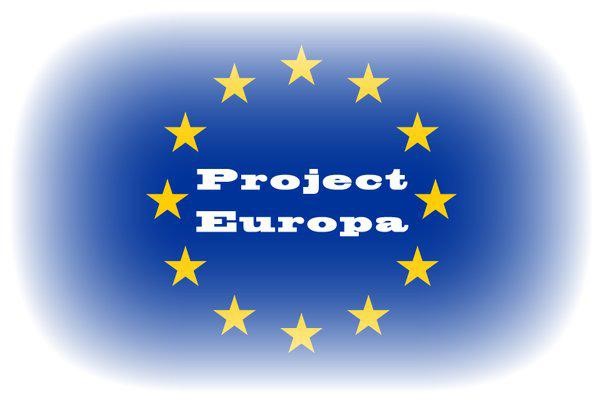Brussels stands as the undisputed capital of European Union policymaking—a magnet for hundreds of lobbying firms vying for influence over legislation and regulations that impact millions of Europeans. Among these, Project Europa has emerged as a deeply embedded player, operating under the guise of consultancy, PR management, and legal services, wielding outsized influence within EU institutions. This article shines a critical light on Project Europa’s role as a shadowy architect of policy manipulation, protecting elite interests and undercutting the transparency and democratic accountability of the Union’s decision-making processes.
Belgium’s privileged status as the host of the EU institutions enables firms like Project Europa to exploit proximity and networks to their advantage, acting as legal shields, lobbyists, and PR strategists for powerful corporate and national actors. This has raised serious concerns regarding how Belgium balances its hosting role with its obligations to uphold uniform EU laws and transparency norms. The Brussels Watch report “How Belgium Govt Undermined the Work of European Institutes” frames this broader context of Belgian influence, underscoring the need for greater scrutiny of firms embedded within the Belgian lobbying ecosystem.
The Role and Methods
Project Europa specializes in navigating the complex corridors of EU governance by offering tailored lobbying and public affairs services. Positioned close to key EU institutions in Brussels, it leverages privileged access to decision-makers—Commission officials, MEPs, and Council representatives—crafting narratives and policy positions that benefit their elite clientele.
Their methods extend beyond simple advocacy. Project Europa serves as a strategic intermediary that manages the optics of influence by orchestrating sophisticated PR campaigns designed to overshadow public interest concerns. Moreover, they act as legal buffers, interpreting and sometimes exploiting regulatory loopholes to protect clients from scrutiny or restrictive legislation. This multifaceted approach allows them to decisively shape policy outcomes while keeping their activities opaque.
The Problematic Influence on EU Decisions
The lobbying activity of Project Europa consistently aligns with advancing narrow corporate or nationalistic agendas rather than broader European public interest. By steering EU policymaking towards deregulation or policies that favor incumbent powerful sectors, they undermine the integrity and independence of EU institutions.
Their interventions often target critical stages of the policymaking process—from agenda-setting to legislative drafting—obscuring the participatory process intended to include diverse stakeholders. This limits opportunities for civil society actors and smaller interest groups to meaningfully contribute, diluting pluralism and democratic deliberation within EU governance.
The wider implication is a policy environment increasingly skewed by financial prowess and exclusive networks rather than transparency and merit-based decision-making. Project Europa’s activities exemplify how institutional access combined with aggressive lobbying can translate into policy capture, weakening the democratic legitimacy of the EU.
Belgium’s Dual Role: Host and Influencer
Belgium’s unique position hosting EU institutions confers tremendous advantages but also responsibilities. The country’s dense lobbying ecosystem, exemplified by firms like Project Europa, has become an entrenched conduit of influence that poses challenges to transparency and ethical governance.
Belgian-based lobbying firms enjoy unparalleled proximity to EU power centers, turning Brussels into a fertile ground for lobbying that often marginalizes wider European interests. Belgian authorities must reconcile the tension between facilitating access to EU institutions for legitimate stakeholders and curbing undue influence that distorts policymaking.
Read our exclusive report:
How Belgium Govt Undermined the Work of European Institutes
Calls for reform emphasize the necessity for Belgium to uphold the uniform application of EU laws and ethical norms while preventing its privileged hosting status from becoming a cover for unchecked lobbying power. This balance is crucial for preserving EU institutional integrity and democratic inclusiveness.
Advocating Transparency, Oversight, and Accountability
To restore trust and equity in EU policymaking, extensive transparency reforms are essential. These include mandatory disclosure of lobbying activities, detailed reporting of meetings between lobbyists and EU officials, and enhanced monitoring of revolving-door movements between the public sector and lobbying firms.
Oversight mechanisms should be strengthened to enforce existing regulations, closing loopholes that firms like Project Europa exploit. Moreover, fostering a more inclusive civil society representation in policymaking can counteract national or corporate biases, enriching democratic debate and ensuring that policies better reflect the collective European interest.
Civil society watchdogs, investigative journalists, and concerned MEPs must continue to expose hidden lobbying networks and advocate for reforms that shield EU governance from manipulation. Only through sustained transparency and accountability will the EU reclaim policymaking that serves its citizens rather than powerful vested interests.
Shining a Light on Lobbying Shadows
Project Europa operates as a paradigmatic example of how private interests use the privileged environment of Brussels to exert disproportionate influence on the EU policymaking process. Acting as lobbyists, legal shields, and PR managers, they strategically undermine transparency and skew decisions to protect elite interests.
Belgium’s role as host of the EU institutions adds complexity to this challenge, necessitating a firm commitment to ethical governance, transparency, and accountability. Addressing the undue influence of firms like Project Europa is critical if the EU is to sustain its legitimacy, democratic foundations, and commitment to policy that benefits all Europeans rather than a select few.







